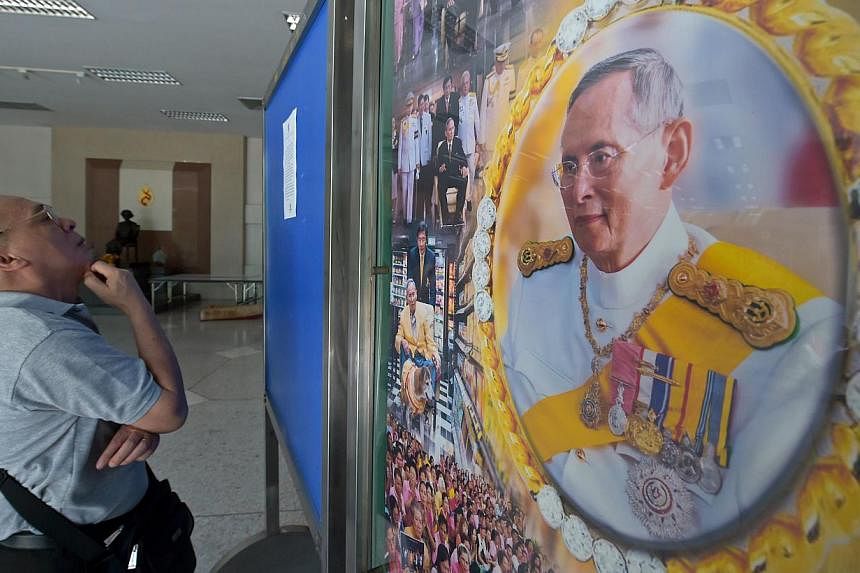BANGKOK (AFP) - Thailand's junta has banned a journalists' association from holding a debate on controversial lese majeste laws, organisers said on Monday, another blow for free speech in the military-ruled nation.
The Foreign Correspondents' Club of Thailand (FCCT) had planned to host a panel discussion on the royal defamation law on Wednesday evening.
In a statement, the FCCT said the police had informed it that soldiers would blockade the building housing the club if the event went ahead. "The FCCT has now been told that if the event goes ahead, the military will come and seal off access to the Maneeya Centre, where the club is located," it said.
The statement said police had conveyed the message on behalf of the National Council for the Restoration of Peace and Order, the official title of Thailand's junta.
Calls to a junta spokesman by AFP went unanswered on Monday.
"We believe the law is a legitimate subject for discussion, not only for Thais, but also for foreigners who live or invest in Thailand," the FCCT said.
"Our discussion would, we believe, have been constructive."
The move comes less than two weeks after the military forbade a group of lawyers from holding a discussion at the FCCT exploring rights abuses under the military rulers.
Under Section 112 of Thailand's criminal code anyone convicted of insulting the king, queen, heir or regent faces up to 15 years in prison on each count - one of the world's strictest such laws.
Recent cases include a 58-year-old man sentenced to 25 years in prison for the content of five Facebook posts, a bookseller jailed for an alleged offence back in 2006 and a mentally ill 65-year-old woman jailed last month for allegedly insulting a portrait of King Bhumibol Adulyadej.
Lese majeste prosecutions have surged since former army chief Prayut Chan-O-Cha seized power in May 2014.
According to iLaw, a local rights group that monitors such cases, royal defamation proceedings were underway for just two people before the coup. Now that number is at least 46.
Critics of the law say it is used as a weapon against political enemies of the royalist elite and their military allies.
Thailand's ultra-royalist generals have long used their self-appointed position as defenders of the monarchy to justify coups and political interventions in the country's often turbulent politics.
But reporting lese majeste cases is fraught with difficulty and media must heavily self-censor. Even repeating details of the charges could mean breaking the law.

